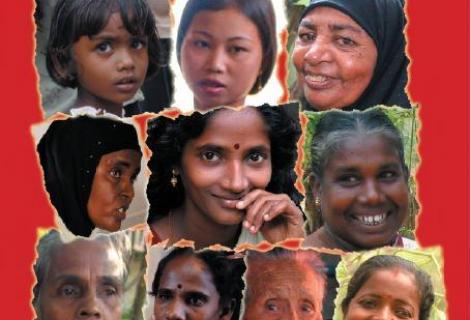
The Indian Ocean tsunami of 26th December 2004 was a disaster of unprecedented magnitude. Across the 12 affected countries in Asia and Africa, more than 230,000 people were reported dead or missing, over 2.1 million were displaced and left homeless, and millions of dollars of infrastructure was destroyed. The scale of the devastation presented enormous challenges for disaster response in the context of the evolving concept of disaster management.
A closer examination of violence in the post-disaster contexts reveals that it extends beyond the conventional understanding of violence being only physical, sexual or emotional. The persistent discrimination perpetrated by the state, communities and families in civil, political, social, cultural and economic aspects of women’s living also constitutes a form of violence. This sustained denial and abuse restricts women’s opportunities to recover. It frequently denies women in general - and single, older, women with disabilities or women-headed households in particular - to live a life with dignity and security.
This report is based on the work of alliances of 174 organisations and their discussions with 7,583 tsunami affected women in India, Maldives, Puntland (in Somalia), Sri Lanka and Thailand. The report aims to examine the nature of violence experiences by female survivors of the tsunami, and actions being implemented to address such abuses, set against the rights outlined in the UN Convention on the Elimination of All Forms of Discrimination Against Women (CEDAW).